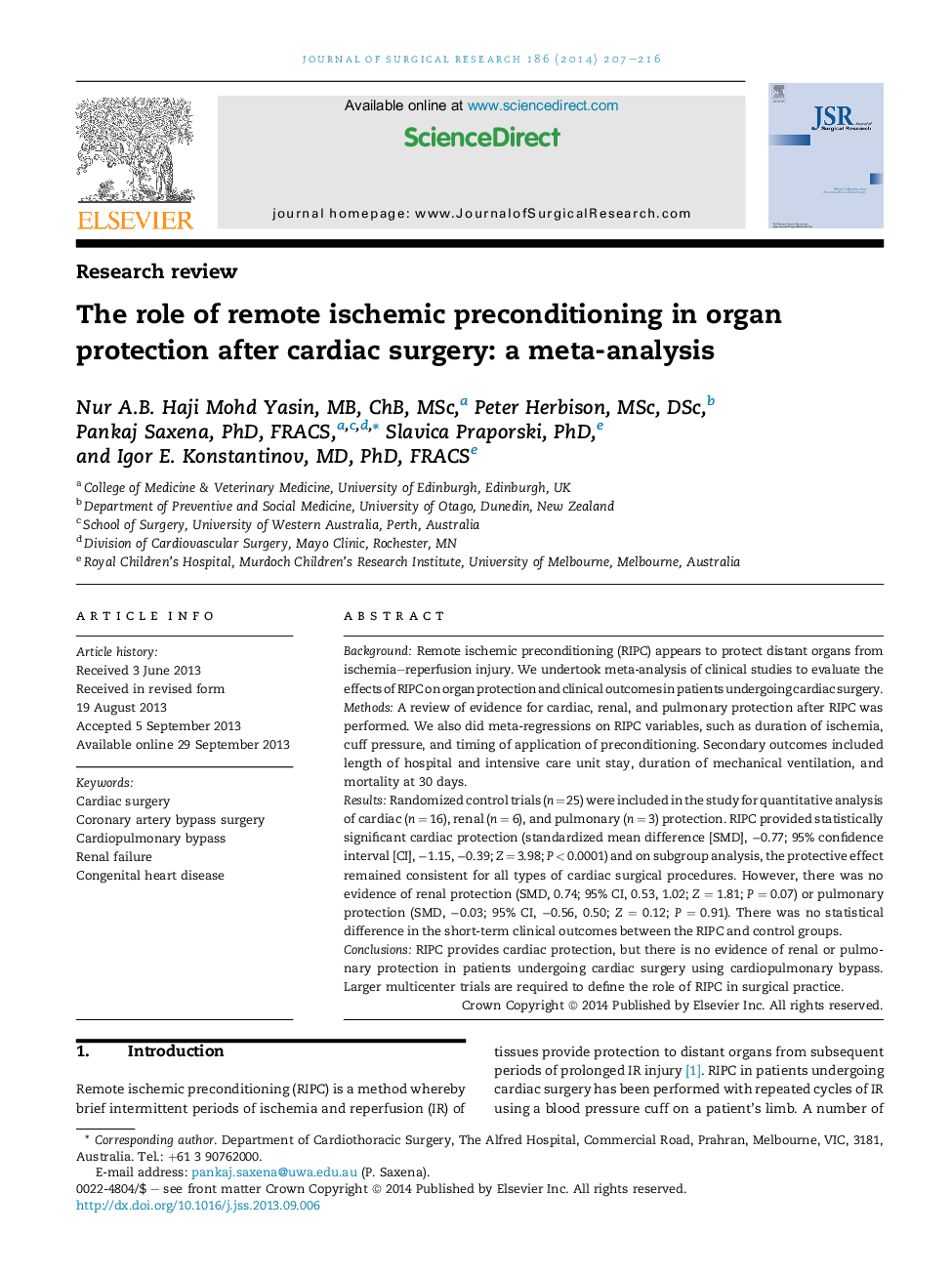| Article ID | Journal | Published Year | Pages | File Type |
|---|---|---|---|---|
| 6254156 | Journal of Surgical Research | 2014 | 10 Pages |
BackgroundRemote ischemic preconditioning (RIPC) appears to protect distant organs from ischemia-reperfusion injury. We undertook meta-analysis of clinical studies to evaluate the effects of RIPC on organ protection and clinical outcomes in patients undergoing cardiac surgery.MethodsA review of evidence for cardiac, renal, and pulmonary protection after RIPC was performed. We also did meta-regressions on RIPC variables, such as duration of ischemia, cuff pressure, and timing of application of preconditioning. Secondary outcomes included length of hospital and intensive care unit stay, duration of mechanical ventilation, and mortality at 30 days.ResultsRandomized control trials (n = 25) were included in the study for quantitative analysis of cardiac (n = 16), renal (n = 6), and pulmonary (n = 3) protection. RIPC provided statistically significant cardiac protection (standardized mean difference [SMD], â0.77; 95% confidence interval [CI], â1.15, â0.39; Z = 3.98; P < 0.0001) and on subgroup analysis, the protective effect remained consistent for all types of cardiac surgical procedures. However, there was no evidence of renal protection (SMD, 0.74; 95% CI, 0.53, 1.02; Z = 1.81; P = 0.07) or pulmonary protection (SMD, â0.03; 95% CI, â0.56, 0.50; Z = 0.12; P = 0.91). There was no statistical difference in the short-term clinical outcomes between the RIPC and control groups.ConclusionsRIPC provides cardiac protection, but there is no evidence of renal or pulmonary protection in patients undergoing cardiac surgery using cardiopulmonary bypass. Larger multicenter trials are required to define the role of RIPC in surgical practice.
